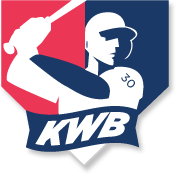This is the full version of Kevin Wilson’s “Open Letter to Coaches” which aired on the KWB Radio podcast in 2015.
“I understand that you took this job not for the money and maybe or maybe not for the fame. But at the end of the day, this game is built on players. This game is built on the people that play between the white lines. It’s the player’s career, and not yours. And even though you’re probably at the holiday party tonight telling everybody that you’re the head coach of the 8u travel team that’s number one in the country, it’s still not about you. Coaches, we have an obligation to carry this game, carry the tradition of baseball to the next generation just like it was carried to us. And coaches, we have a huge responsibility to be able to make this game about the players and not us.
Little Johnny started to play this game because of the simple fact that he loved it. Hopefully Johnny will continue to play this game because he still has a love and a passion for playing this great game of baseball. I pray that you do not ruin it for Little Johnny and a lot of others. Because I see it way too often that very talented players who started playing this game because they loved it end up quitting because of you the coach that is overbearing, screams, yells and just beats the living tar out of these kids on a daily basis – mentally, not physically. And at the same time, you do not know the damage that you are doing to these kids, so I challenge you.
Because now is the time that you have as a New Year’s resolution to be able to turn 2015 around and make this game about the players and not you. You need to put your arm around a player and tell him that he’s going to be just fine. When Johnny strikes out you go over to him and say that’s fine, do you understand what happened? Go get ‘em next time, I’m not mad.
I challenge you in the 3rd base coach’s box to not say a word other than encouragement. I challenge you not to talk hitting and stances and back elbows and squishing bugs at the 3rd base coach’s box. I challenge you to just write up the lineup card one game and sit silent the entire game.
I challenge you to make this game about the players and not you and if you can’t, I ask you kindly just to step away from this game. Not for your sake, but the player’s sake. Because there’s a lot of guys out there that can coach this game the right way and there’s a lot of kids out there that can play this game really, really well if you just stay out of the way.”
You can listen to the 5-minute episode in its entirety here:
For more than a decade, Kevin Wilson has been one of the most respected hitting coaches in the game. He works behind the scenes as a private hitting consultant to some of the best hitters in Major League Baseball. In 2013, Kevin was the hitting coach for the USA Baseball 18U National Team. Team USA beat Japan for the Gold medal at the IBAF World Cup in Taichung, Taiwan.
He is the author of the Amazon #1 Best Seller The #GoodBatting Book and co-hosts a popular podcast, KWB Radio, that showcases unique conversations with the pros. If you want Kevin to speak at your next event or if you want take advantage of his popular 2-day KWB Experience for players and coaches, contact Kevin today!
Follow Kevin on twitter @KWBaseball and visit his website KWBaseball.com
